Robert Pattinson and Mia Wasikowska star in this offbeat western by the filmmaking team behind 2014’s Kumiko, the Treasure Hunter. Henry, played by co-director and co-writer David Zellner, is a man who has moved out west after the tragic death of his wife “to get a fresh start.” By a chance encounter with a world-weary preacher (Robert Forster), Henry is bequeathed the minister’s outfit and bible.
Next, Pattinson’s Samuel Alabaster enters the film, towing along a miniature horse, and he commissions “Parson” Henry to ride with him to rendezvous with the love of his life, Penelope, and to perform a spur-of-the-moment wedding. Well-to-do Samuel has everything all planned out. But along the way, it comes out that Penelope has, in fact, been kidnapped, and Samuel’s plan now includes Parson Henry helping him steal Penelope away from her captor. When we finally meet Wasikowska’s Penelope, the couple’s backstory comes together and the narrative shifts for the remainder of the movie. I won’t go into spoilers, but the title signifies the tweak the Zellners give to the western genre.
Pattinson has been making some bold choices with his career these days, essentially tearing down any remaining semblance of Edward the vampire from “The Twilight Saga.” As Samuel, Pattinson uses a weird, twangy accent that denotes strangeness to him, as does his personal appearance. He has one of his incisors capped, making him look snaggletoothed, his hair is rust colored, and he has a pubescent-looking goatee that is not becoming. This is reminiscent of the dressed-down Pattison in last year’s Good Time.
Samuel’s personal appearance is very particular and crafted, but he’s a moron deluding himself into thinking what may look good on another man will work the same for him. At moments you’ll see Pattinson’s handsomeness peeking through, but then Samuel will speak or make a weird face, and remind you that this guy, while well spoken, is trying a little too hard, and that makes him pretty creepy.
The arc of Parson Henry’s character reminds me so, so much of Johnny Depp’s William Blake in Jim Jarmusch’s Dead Man and the Civil War veteran of the lesser-known short film “One Soldier” by comedian Steven Wright (those two films, for me, are inextricably linked). Here the Zellners use Parson Henry’s character to discuss modern-day depression against the backdrop of the Old West, where there would be no such diagnosis nor any help for a man such as Henry, save for whisky, in which he drowns himself at every possible opportunity.
Samuel and Penelope’s story arcs, too, can easily be viewed as a commentary on today’s relationships being carried out through texts and social media. Samuel’s plan to propose to and marry Penelope on the spot has all the trappings of a staged Instagram post: he’s got a new suit, he’s got the ring, he’s brought along his guitar to sing the song he wrote for her—wait until you hear it—and to top it all off, he’s got Butterscotch, a miniature horse he splurged on as a wedding gift, based entirely on something Penelope said in passing when they saw one at a fair. An idiot misinterpreting a woman’s signals wasn’t specific to the 19th century—this is where we live right now.
With all that said, Damsel is going to appeal to a rather slim portion of film audiences. While there are undoubtedly some big laughs, quite a lot of the jokes don’t land, resulting in some awkward silences in the movie theater. But there are large, topical allegories at play here. For me, there is a scene that pretty much sums up the film.
At one point on their journey, Penelope and Parson Henry stop by a stream to take a drink and wash themselves. Penelope first takes off her boot, turns it upside down, and a pebble falls out. Then Henry takes off his own boot. At first, some pebbles roll out. Then he tips it even further and more pebbles and some sizable rocks come tumbling out. Sure it’s a slight sight gag ala Airplane!, but if you can appreciate it as a larger visual metaphor pertaining to the characters, then you might be the kind of viewer who will click with the Zellners’ film.

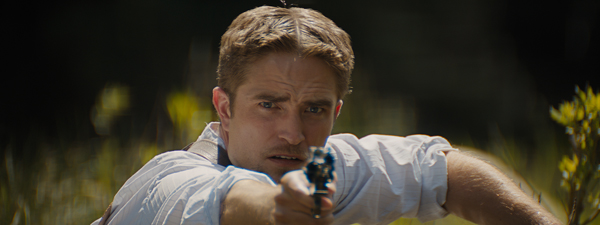
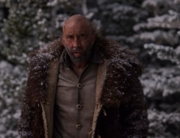
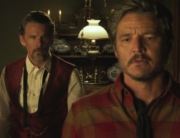
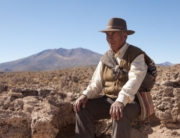
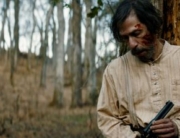











Leave A Comment